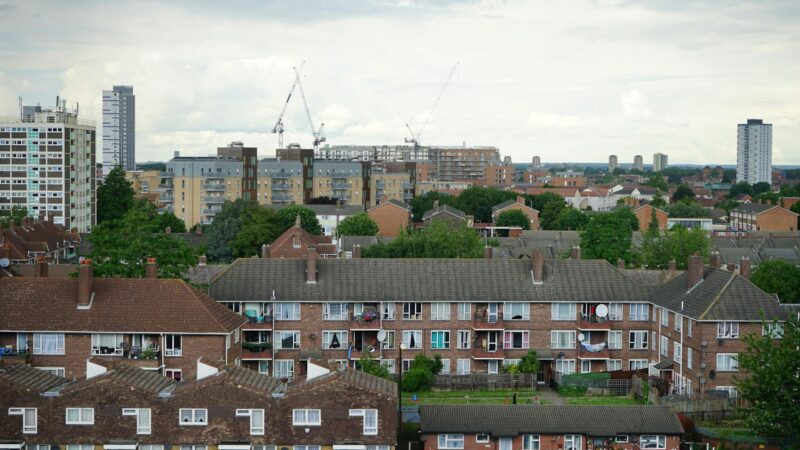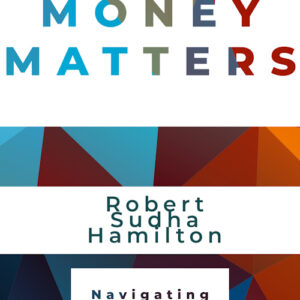
Economics, as a subject and vocation, has been dominated and owned by banks and the people who work for that sector for centuries. Maybe it’s time to take back some control over something that sits at the centre of our lives. Knowledge is power. Economics rules our lives. Did you notice that governments around the world came to the fore when there was a public health crisis. Governments helped individuals and businesses out with money to keep them going through the pandemic. However, once that was over, we were all hit with an economic tsunami of high CPI inflation. Suddenly, no one could help, as all measures of direct assistance were considered inflationary. The money tree had been poisoned.

Inflation, Central Banks & The Economy
Apparently, all governments were impotent in the face of the dreaded inflation. Central banks were calling the shots and raising interest rates on the cash rate. No longer was it fine for needy folks to reach out for assistance. No, this was economics and it gazumped all other considerations. This was bigger than a global pandemic, according to the banks who run the system. Despite the fact that we operate in a never ending economic boom and bust cycle this is foundational stuff.
Economic Imperatives & Austerity
The older you get; you can start to observe the cyclical nature of this. It comes around again and again, the faces at the top may change but their actions don’t vary much. Money is the life blood of our economy and institutions. Our currency must be protected from devaluation as much as possible no matter the costs to lives, it seems. Stony face governors of the Reserve Bank sit in stern judgement upon the wanton spending habits of citizens.
Austerity is wheeled out during these times of high inflation and we all must tighten our belts and suck up the misery for the good of the nation.

Who Inflation Hits Hardest
Inflation, however, effects different parts of the economy differently. It hurts the poor most, with essentials like food, rent, and energy costing more and wages buying less. The wealthy can weather inflation more easily with their properties and buoyant bank accounts. Government revenue peaks during inflationary periods and their coffers get full. One economist, Professor Richard Werner, tells us that the central banks engineered this current high inflationary period via their Quantitative Easing (QE2) in 2020. This is where they purchase the performing assets of non-bank entities. This directly injects trillions of dollars into the economy. This is a once in a century type event in central bank terms. The RBA did this on the advice of their sister central bank the Federal Reserve in the US. It is said they did this because with interest rates at such record lows, prior to their intervention, they had lost their one monetary policy lever. Creating inflation was their goal, but openly admitting to this was not in their official remit. Thus, the following energy shocks from the Russian invasion of Ukraine was an expedient scapegoat to blame. Following the usual 18 month lag time after the massive influx of money, double-digit inflation hit global economies.
The first rule of economics is – too much money supply chasing too few products always causes inflation.

The Housing Crisis
Housing in Australia and around the globe now is a prime example of this. There are housing crises going on, especially with the rental housing market, in the UK, US, Europe and Australia. Not enough supply due to things like the incredible growth of Airbnb, with property owners shifting their houses to short term holiday accommodation and out of the longer term rental market. Plus, record amounts of immigration coming into Australia over the last 18 months exacerbating the situation. Rents have gone up 20% to 30% and there is bugger all social housing available. Governments exited this decades ago on the neoliberal wave – let the market take care of it. Of course, the market didn’t and now we have a crisis on our hands.
This is another failure of governments over the last decades. Abnegation of their social responsibilities in areas that really matter. In Australia, housing is all about making money, rather than putting rooves over people’s heads.

The Capital Gains Tax Conundrum
Since John Howard changed the capital gains tax back in the 1990’s, by ringfencing 50% of the value of the family home from any burden of taxation, it has become the major domestic investment instrument in Australia.
Alan Kohler, the respected finance journalist, recently highlighted that owning a home has increased in comparative average value from 3.5 times annual wages to 7.5 times since that change to the capital gains tax. Those property owners who have benefitted from the massive increase are happy but all those locked out of the market now and in the future are not. This has been the single biggest divisive shift within the shared wealth of the nation. If there is not equal economic opportunity within a society it is a recipe for social unrest. The ‘have nots’ will rise up sooner or later, history tells us that. You are creating a two speed economy, where property owners can lord it over the serfs. Australia is in the midst of this right now and the two major political parties do not have it in them to rock the boat. The LNP don’t have the inclination, as they see their natural home among the propertied class. Labor is still gun shy after Bill Shorten’s electoral defeat in 2019, where he took changes to negative gearing and other wealth accumulation policies to the Australian people and lost. Politics vs policy. Short term populism vs prudent economic planning. The LNP will always run scare campaigns about death taxes and socialist governments coming for your stash under the bed.
“The escalation in house prices is a pain that has altered Australian society; it has increased inequality and profoundly changed the relationship between generations – between those who have a house and those who don’t. Things went seriously wrong at the start of the twenty-first century, when there was a huge and permanent rise in the price of housing. But what actually happened? And what to do now? As Alan Kohler explains, “the solutions are both complex and simple, difficult and easy: supply must be increased and superfluous demand reduced.” “
– (https://www.quarterlyessay.com.au/essay/2023/11/the-great-divide)
https://www.youtube.com/watch?v=y9RbDE7JD9s

Change Is Coming, Ready Or Not
As the electoral population undergoes generational change parties like the Greens and the Teal independents will continue to expand their political power. The economic realisation of where many Australians stand will mount up. The numbers will begin to shift their way. The LNP likely will become a more authoritarian party in a bid to hold onto power despite the downward trend of democratic support. More protest will hit the streets about such issues as the housing/rent crisis and government/institutional failures to do something about it in a timely manner. The young will rise up and demand action. All those properties sitting empty for investment purposes around Australia will become targets for the unhoused. The fact that economics rules our lives will be cause for closer scrutiny. Questions about who makes the overarching economic calls and why will get more strident. The gilded domain of the banks and the central bank will come under more fire.
Even now, more people are becoming more knowledgeable about economics in a bid to challenge the status quo.
Robert Sudha Hamilton is the author of Money Matters: Navigating Credit, Debt, and Financial Freedom.
©MidasWord
-
Product on sale
 Money Matters: Navigating Credit, Debt & Financial Freedom MOBI formatOriginal price was: $14.99.$11.99Current price is: $11.99.
Money Matters: Navigating Credit, Debt & Financial Freedom MOBI formatOriginal price was: $14.99.$11.99Current price is: $11.99. -
Product on sale
 Money Matters: Navigating Credit, Debt & Financial Freedom PDF formatOriginal price was: $14.99.$11.99Current price is: $11.99.
Money Matters: Navigating Credit, Debt & Financial Freedom PDF formatOriginal price was: $14.99.$11.99Current price is: $11.99.





















